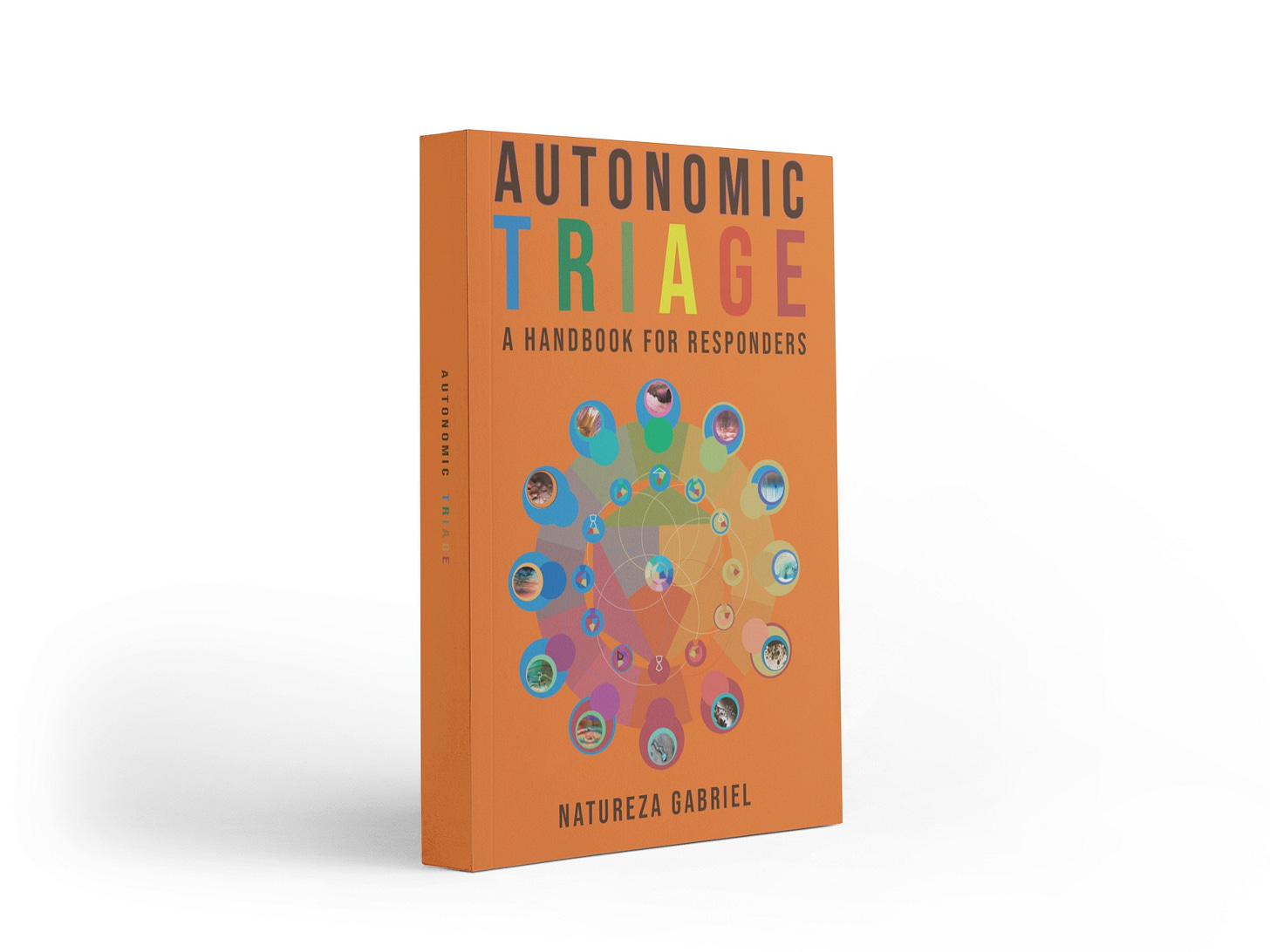Bringing Autonomics to the people
It has been a couple of months. I was there when the republic died. We moved. I totaled my Tesla (not on purpose). I crashed my phone. I got sick. I got better. I met with the 94-year-old matriarch of my family of origin. Rains came. In the equipoise of the equinox, my body made subtle distinctions about what work belongs to me and what does not.
(Today is the spring equinox, spring technically began about 5 hours ago. Happy spring.)
I am evaluating some opportunities to get the word out about our work on larger stages, and continuing the granular filtration process of discerning, in my body, who and what we can trust as we continue to seek to disseminate this important work into the world in ways that are useful.
On the side of pure delight, we are on the threshold of initiating a collaboration with one of my intellectual heroes, Darcia Narvaez, Developer of the Evolved Nest, one of the world’s leading trans-disciplinary psychology researchers whose seminal text Neurobiology and the Development of Human Morality up-ended several hundred years of the field of moral reasoning, and whose collaboration with Gay Bradshaw, The Evolved Nest: Nature’s Way of Raising Children and Creating Connected Communities should be required reading for anyone serious about human and planetary flourishing. I have had the good fortune to know Darcia since 2013; her work was what gave us the conceptual framework to shift the focus of our own from applied mindfulness to the neurobiology of connection. We are in the process of organizing to co-create an interactive book at the union of our respective areas of focus…more on this soon.
I’m also very excited to be initiating a recorded dialog, in April, with Dr. Eric Gordon, a brilliant, patient, and encyclopedically learned integrative medical doctor internationally recognized for pioneering clinical work on the treatment of complex chronic illness. We were introduced about a year ago by Bob Naviaux, a pioneer in mitochrondrial medicine, who runs the Naviaux Lab at UCSD. Together we’ll be looking at the role of Autonomics in the treatment of complex chronic illness.
In a continuing effort to simplify the work, and relate it in more and more approachable language, I have written two books of distillation since releasing The Neurobiology of Connection. Autonomic Compass is a handbook for developing autonomic awareness, fluency, and agency. It explains what the Autonomic Nervous System is, why it is important, how it works, and how to work with it, in plain language with everyday analogies. No technical interest or background required.
Today we release Autonomic Triage, a pocket-sized handbook for first responders, a lemons into lemonade kind of response to the car accident in February. Although it is conceived for first responders- police, fire, counselors, teachers- anyone engaged in triage with humans facing overwhelming experiences, it is the simplest distillation of our work on reading autonomic cues thus far.
If your job involves going toward events that other people are trying to get away from, this handbook will enable you to read the primary autonomic states of people you are attempting to help so that you move them back toward safety and connection. The book is literally small enough (4 x 6) to fit into your pocket. It is a way to quickly up-skill a staff on autonomic literacy, something none of the first responders who responded to the crash I was in possessed. (Bulk orders here.)
If you are around this weekend, I’m teaching two 3-hour classes on the Foundation Model (one tomorrow, one Saturday). One is focused on reading the Autonomic Mandala, the other on embodiment as a doorway to the Deep Nervous System. Learn more here.




